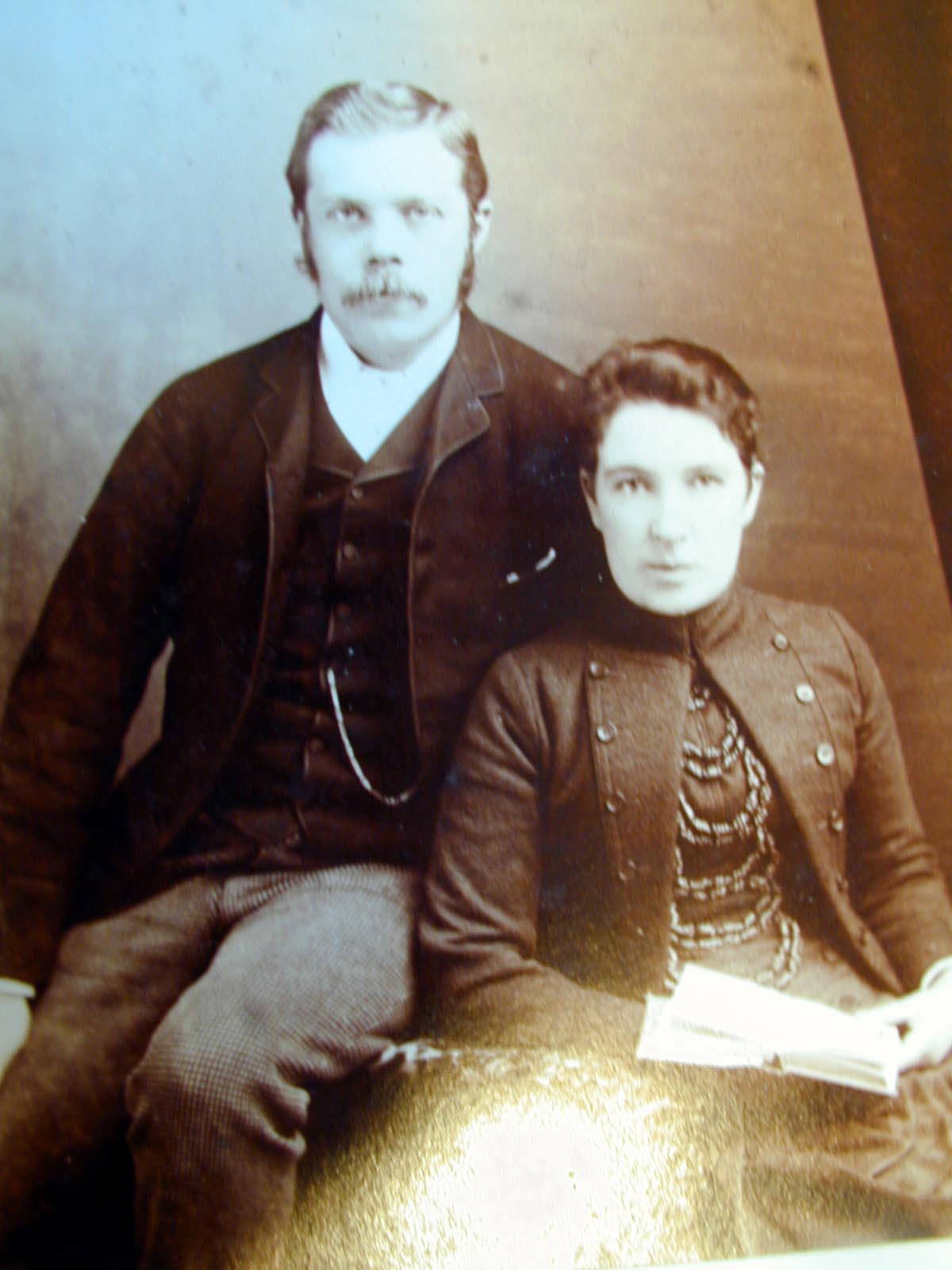 |
|
|
Richard Philip Fleming
13 June 1859, Dundee - 07 February 1908, Broughty Ferry
Associated with Dundee Chess Club
Canadian Champion 1889
Richard Fleming was the seventh of nine children. His father was David Hood Fleming (b. 1823), a prosperous jute merchant in Dundee, and his mother was Isabella Fleming, née Philip.
There were some interesting family connections: David Hood Fleming’s brother William Hood Fleming was the father of Robert Fleming (1845-1933), who founded a banking dynasty and was also the grandfather of Ian Fleming, James Bond author.
Fleming joined the Dundee Chess Club, which had re-opened in 1885 after being in abeyance for several years. In 1886, after a tie-break against C.R. Baxter, he was the first winner of the Challenge Shield, which had been presented to the club by its President, W.N. Walker.
Canada
In his professional life Fleming was a civil engineer, and by 1887 he was the Resident engineer of the Dundee and District Sanitary Association, whose offices were at 11 Reform Street, Dundee (Fleming's home was at 9 Albany Terrace).That same year, however, he married Helen Stevenson Munro and emigrated to Canada. He had been engaged in a correspondence match for a Scottish Chess Association team against the Irish Chess Association, but he felt obliged to resign his game because he was about to be "mated".
Fleming became a member of the Canadian Society of Civil Engineers, and took a position as a civil engineer with the Montreal Sanitary Association. Later, he was invited by McGill University, Montreal, to deliver a series of lectures on Practical Sanitation. These began in session 1889/90.
Fleming must have been held in high regard by the man who was in charge of Civil Engineering and Applied Mechanics, Professor Henry Bovey, for within a few months they were jointly involved in setting an exam paper.
The respect must have been mutual as Fleming named a child, born 1891, Richard Henry Bovey Fleming.
Richard Fleming and his wife, Helen Stevenson Munro
Photo courtesy of Neil Fleming, great-grandson of Richard Fleming.Canadian Champion
Richard Fleming was already an active player in the Montreal chess scene when he won the 1889 Canadian championship, held in his home city. He and James Narraway tied for 1st place with 6/8, but Fleming won the play-off game.Fleming, like many other chess players at that time, also had an interest in chess problems; several of his compositions appear in Canadian Chess Problems, published in 1890.
Back in Scotland
Fleming returned to Scotland and resumed his participation in chess events. He timed his return well, as he was a member of the Dundee CC team that won the Richardson Cup in season 1898/99, the first year of the event. The trophy had been donated the year before by J.B. Richardson for the premier team competition in Scotland. The final took place in Dundee and resulted in a tie. The replay was held in Edinburgh a fortnight later.Richardson Cup - Final - 1899
W.N. Walker D.Y. Mills H.T. Baxter H. Jackson R.P. Fleming G.P. Galloway H.J. Thoms J.G. Thomson Rev. C.M. Grant J. Campbell
Fleming took a position with the town council of Carnoustie as Sanitary Inspector, Burgh and Road Surveyor, and Inspector of Cleansing. He resigned this position in 1906 as he intended to start his own business as a Sanitary Engineer in Dundee (County and Municipal Record 1906, Vo.l 6, p. 381).Richard Fleming died suddenly, aged 48, on 7 February 1908.
Primary source:
Thanks to Neil Fleming, the great-grandson of the subject, for family information and photograph.Other sources:
ScotlandsPeople web site: birth and death records (http://www.scotlandspeople.gov.uk).
The Story of Dundee Chess Club, by Peter W. Walsh (1984).
British Chess Magazine 1887, p. 219.
EDO Historical Chess Ratings (Canadian Championship 1889).
Engineering News Record, Vol. 22, 1889, October 19, p. 362.
McGill University Calendar 1890/91, p. 78.
Arbroath Year Book 1901, p. 220.
http://bcchesshistory.com/visitors2.html (Stephen Wright)
Alan McGowan
Historian, Chess Scotland
